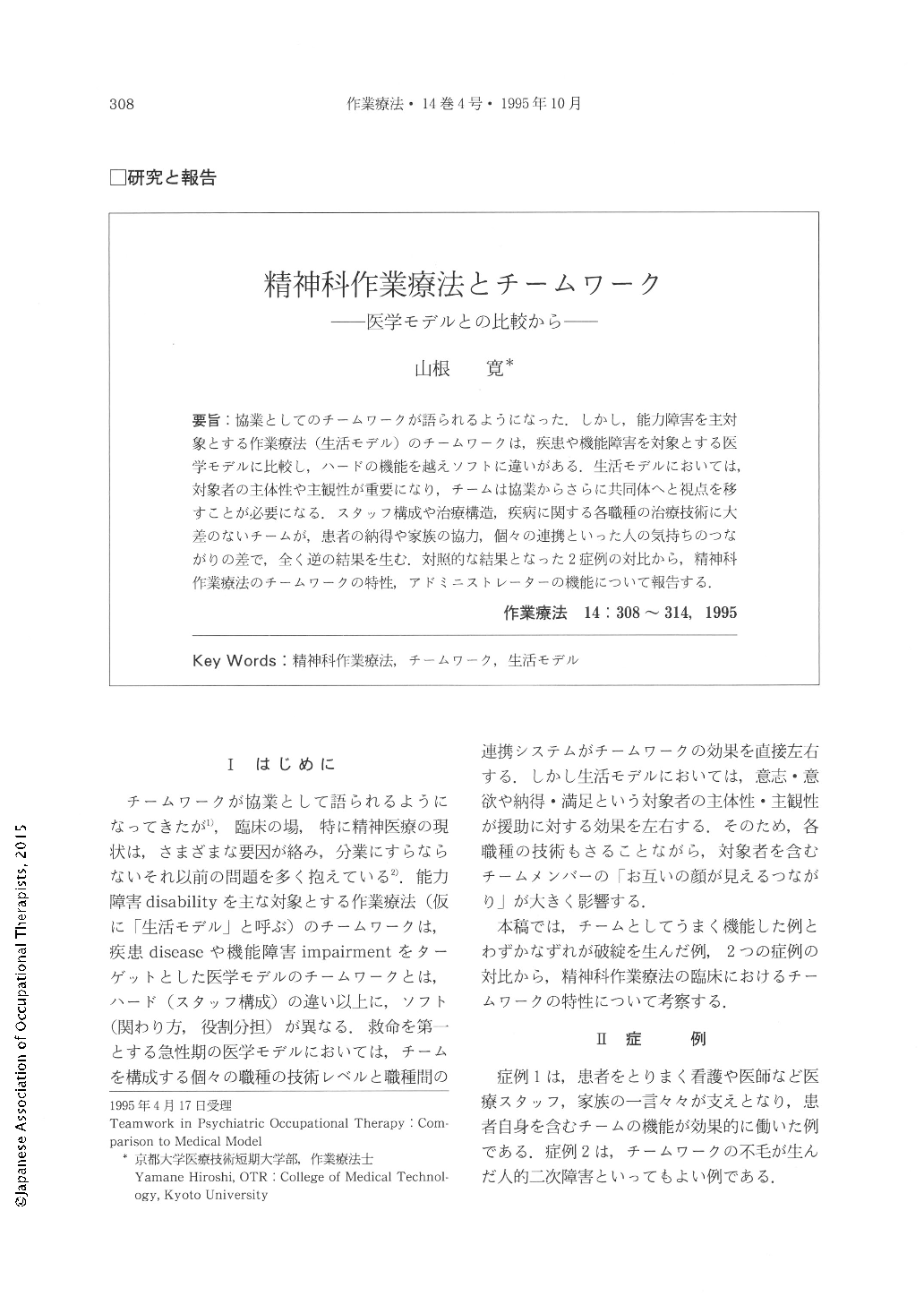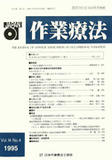Japanese
English
- 販売していません
- Abstract 文献概要
- 1ページ目 Look Inside
- 参考文献 Reference
- サイト内被引用 Cited by
要旨:協業としてのチームワークが語られるようになった.しかし,能力障害を主対象とする作業療法(生活モデル)のチームワークは,疾患や機能障害を対象とする医学モデルに比較し,ハードの機能を越えソフトに違いがある.生活モデルにおいては,対象者の主体性や主観性が重要になり,チームは協業からさらに共同体へと視点を移すことが必要になる.スタッフ構成や治療構造,疾病に関する各職種の治療技術に大差のないチームが,患者の納得や家族の協力,個々の連携といった人の気持ちのつながりの差で,全く逆の結果を生む.対照的な結果となった2症例の対比から,精神科作業療法のチームワークの特性,アドミニストレーターの機能について報告する.
In the last few years, a few clinical scholars began to pay attention to a teamwork as collaboration. But despite the many theoretical descriptions of teamwork, there are relatively few good, working examples in psychiatric rehabilitation model (life model). The teamwork in life model and the teamwork in medical model differ in software. Successful life model teamwork is influenced by both the patient's independence, subjective assent; and the understanding, cooperation of those around him or her. Psychiatric disabilities are not as fixed as most physical disabilities. They can change depending upon the characteristics of the supporting environment. Therefore the life model teamwork needs to understand the dynamic interaction of team members including patient and family. This dynamic view of the nature of teamwork in life model stands in sharp contrast to the concept of the teamwork in medical model. And it is important to change a viewpoint from collaboration to that of therapeutic community.

Copyright © 1995, Japanese Association of Occupational Therapists. All rights reserved.


